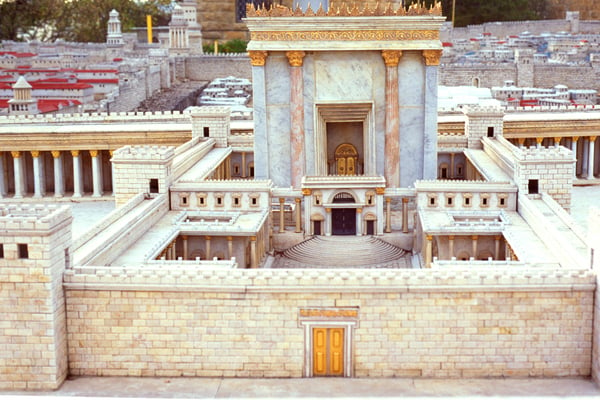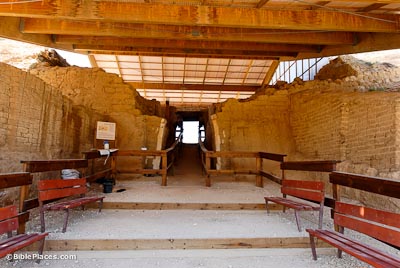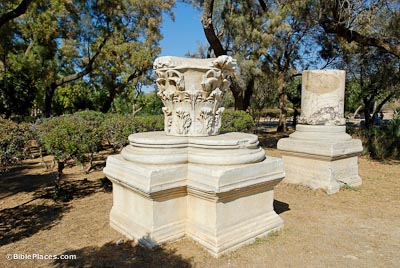
Bible Verse and Prayer for Today;
Psalm 103:13 – 18 As a father pitieth his children, so the LORD pitieth them that fear him.
For he knoweth the frame of us, remembering that we are dust.
As for man, his days are as grass; as a flower of the field, so he flourisheth.
The wind passeth over it, and it is gone, and his place knoweth it no more.
But the mercy of the LORD is from everlasting to everlasting upon them that fear him, and his righteousness unto children’s children,
To such as keep his covenant, and to such as remember his commandments to do them.
Prayer
Lord. Thank you very much for your promise to us who are called children of God because we are led by your Holy Spirit, and those who respect and fear you as our Creator. those who keep your covenant and daily do your commandments. We thank you for your righteousness unto eternity in Jesus' name. Amen and Amen
Bybel Vers en Gebed vir Vandag
Psalm 103:13 – 18 Soos ‘n vader hom ontferm oor die kinders, so ontferm die HERE Hom oor die wat Hom vrees.
Want Hy, Hy weet watter maaksel ons is, gedagtig dat ons stof is.
Die mens—soos die gras is sy dae; soos ‘n blom van die veld, so bloei hy.
As die wind daaroor gaan, is dit nie meer nie en sy plek ken hom nie meer nie.
Maar die goedertierenheid van die HERE is van ewigheid tot ewigheid oor die wat Hom vrees, en sy geregtigheid vir kindskinders,
vir die wat sy verbond hou en aan sy bevele dink om dié te doen.
Gebed
Here . Baie dankie vir u Belofte aan ons wat Kinders van God genoem word weens ons gelei word deur U Heilige Gees , en die wat U as ons Skepper respekteer en Vrees . die wat U verbond hou en daagliks aan U bevele ding . Ons dank U vir U geregtigheid tot in Ewigheid in die naam van Jesus . Amen en Amen

Bible Teaching of the Day

The Inevitability of Persecution for Followers of Jesus
In fact, everyone who wants to live a godly life in Christ Jesus will be persecuted (2 Timothy 3:12 NIV).
Blessed are those who are persecuted because of righteousness, for theirs is the kingdom of heaven (Matthew 5:10) NIV
Jesus deeply loved His disciples. He walked closely with them: teaching, eating, praying, and performing miracles in their midst. Yet, in all His compassion, He did not conceal the hard truth: following Him would come at a price. He spoke openly about the hardship, rejection, and persecution they—and by extension, all who believe in Him—would face. That is not the message we want to hear. Why? Because no one likes pain. Even Jesus, knowing the cross was necessary, prayed in Gethsemane to avoid the cup of suffering (Matthew 26:39), yet, He endured the cross for the joy set before Him (Hebrews 12:2). As His followers today, we too are called to endure. But we are not left without help, encouragement, and comfort. Jesus promised, Peace I leave with you; my peace I give you. I do not give to you as the world gives. Do not let your hearts be troubled and do not be afraid (John 14:27).
Understanding Persecution
Persecution is any hostility directed at someone because of their faith in Jesus. It is not just physical violence or imprisonment but can include exclusion, slander, mockery, loss of opportunities, or being treated unfairly simply because you are a follower of Christ. Whether subtle or outright violence, the root cause of persecution is often the same—hatred for the light that exposes darkness. Jesus told His disciples, Blessed are you when people hate you, when they exclude you and insult you and reject your name as evil, because of the Son of Man (Luke 6:22). The disciples saw firsthand how Jesus was treated—mocked, beaten, and crucified—though He was innocent. Jesus is the real target. When you carry His name, the enemy takes notice. But remember, being a co-heir with Christ means sharing not just in His glory, but also in His suffering: Now if we are children, then we are heirs—heirs of God and co-heirs with Christ, if indeed we share in his sufferings in order that we may also share in his glory (Romans 8:17).
Not All Suffering Is Persecution
It is important to clarify here that suffering for wrongdoing is not persecution. Addressing this issue, Apostle Peter says: But how is it to your credit if you receive a beating for doing wrong and endure it? But if you suffer for doing good and you endure it, this is commendable before God. To this you were called, because Christ suffered for you, leaving you an example, that you should follow in his steps (1 Peter 2:20–21). Peter is clarifying to us that persecution is the suffering that comes from living righteously, proclaiming the gospel, and obeying God—even when it is inconvenient or costly.
Persecution in the Early Church
Persecution is not a modern-day Christianity construct; it has always been part of Church history, and God has used persecution as a tool for expansion and growth. In Acts 8, after the martyrdom of Stephen, we see persecution intensifying:
Ironically, the scattering of the believers led to the spreading of the Gospel.
Persecution also has a way of pulling believers together in prayer, love, and unity. In Acts 12, we see Peter imprisoned by King Herod, but the Bible tells us that the church was earnestly praying for him (vs. 5). During those difficult times, God still worked miracles, like Peter’s release from prison, thus encouraging the brethren not to give up.
What Should Our Attitude Be Toward Persecution?
1. Expect it
Jesus said it repeatedly: If the world hates you, keep in mind that it hated me first (John 15:18). He also said, A servant is not greater than his master. If they persecuted me, they will persecute you also. If they obeyed my teaching, they will obey yours also (John 15:20). As disciples, we must settle it in our hearts that persecution is part of the journey.
2. Recognize it as a test of faith
Trials refine us. They test the genuineness of our faith and build in us spiritual strength and virtue: Dear friends, do not be surprised at the fiery ordeal that has come on you to test you, as though something strange were happening to you. But rejoice inasmuch as you participate in the sufferings of Christ, so that you may be overjoyed when his glory is revealed (1 Peter 4:12–13).
3. Trust that God is with you
But when they arrest you, do not worry about what to say or how to say it. At that time you will be given what to say, for it will not be you speaking, but the Spirit of your Father speaking through you (Matthew 10:19–20). You are never alone. The Holy Spirit is with you, guiding you and giving you the words to say.
Jesus had a clear view of the reward, For the joy set before him he endured the cross, scorning its shame, and sat down at the right hand of the throne of God (Hebrews 12:2), and so must we. Heaven celebrates those who endure for His name.
How to Respond to Persecution
1. Pray and take refuge in God
Prayer anchors our soul and invites divine intervention. Whether in prison, on trial, or in private pain, cry out to God for, The name of the LORD is a fortified tower; the righteous run to it and are safe (Proverbs 18:10).
2. Respond with joy, love, and forgiveness
Bitterness weakens our spirit. Joy, love, and forgiveness strengthen it. Jesus expects us to rise above offense and reflect His nature. He exhorts us to love our enemies and pray for those who persecute us (Matthew 5:44). We are to rejoice and be glad when people persecute us and falsely say all kinds of evil against us because of Him, because great is our reward in heaven (Matthew 5:11-12).
3. Anchor yourself in the Word of God
But even if you should suffer for what is right, you are blessed… Always be prepared to give an answer… with gentleness and respect (1 Peter 3:14–16). God’s Word strengthens conviction. When you are rooted in Scripture, you stand firm even in tough times. Jesus overcame Satan’s temptation by quoting Scripture, so should we.
4. Remember the Heroes of Faith
Reflecting on the faithful who endured persecution reminds us we are not alone. Paul listed his sufferings in 2 Corinthians 11:23–29, yet he triumphantly declared: I have fought the good fight, I have finished the race, I have kept the faith (2 Timothy 4:7). James reminds us to count as blessed those who have persevered, including Job, who God rewarded for his perseverance (James 5:10-11). Shadrack, Meshack and Abednego declared: If we are thrown into the blazing furnace, the God we serve is able to deliver us from it, and he will deliver us… But even if He does not… we will not serve your gods (Daniel 3:17–18). These testimonies encourage us to stand strong and finish well.
How the Body of Believers Can Help Those Who Are Being Persecuted
The body of Christ has a responsibility to support those who are facing persecution: If one part suffers, every part suffers with it; if one part is honored, every part rejoices with it (1 Corinthians 12:26). This support can take various forms:
● Prayer: Earnest prayer for God to rescue and strengthen those who are persecuted.
● Practical assistance: Providing financial resources and aid to help with the resettlement of displaced people and to meet the needs of families affected by persecution.
● Christian counseling: Offering biblical guidance and counseling to address the trauma and psychological stress experienced by persecuted believers.
● Advocacy: Raising awareness and advocating for policies and laws that protect the rights and safety of believers, ensuring that acts of violence against them are not met with impunity.
Conclusion
Drawing from the letters of the apostle Paul, who experienced and faithfully endured much suffering, we find comfort and assurance. Paul reminds us that nothing can separate us from the love of God. No form of persecution, hardship, or suffering can sever the bond between believers and their Lord (Romans 8:35-39). He also exhorts us, that our present sufferings are not worth comparing with the glory that will be revealed in us when we meet our Maker (Romans 8:18). Therefore, let us remain steadfast, committed, and full of faith, knowing that nothing we endure for the sake of Christ is in vain.
Bybel Lering vir die Dag
Die Onvermydelikheid van Vervolging vir Volgelinge van Jesus
Trouens, almal wat ‘n godvrugtige lewe in Christus Jesus wil lei, sal vervolg word (2 Timoteus 3:12 NLV).
Geseënd is die wat vervolg word ter wille van geregtigheid, want aan hulle behoort die koninkryk van die hemele (Matteus 5:10) NLV
Jesus het Sy dissipels innig liefgehad. Hy het nou saam met hulle gewandel: geleer, geëet, gebid en wonderwerke onder hulle gedoen. Tog, in al Sy medelye, het Hy nie die harde waarheid verberg nie: om Hom te volg, sou teen ‘n prys kom. Hy het openlik gepraat oor die ontbering, verwerping en vervolging wat hulle – en by uitbreiding, almal wat in Hom glo – sou teëkom. Dit is nie die boodskap wat ons wil hoor nie. Hoekom? Omdat niemand van pyn hou nie. Selfs Jesus, wetende dat die kruis nodig was, het in Getsemane gebid om die beker van lyding te vermy (Matteus 26:39), maar Hy het die kruis verduur vir die vreugde wat Hom voorgehou is (Hebreërs 12:2). As Sy volgelinge vandag, word ons ook geroep om te volhard. Maar ons word nie sonder hulp, bemoediging en vertroosting gelaat nie. Jesus het belowe: Vrede laat Ek vir julle na; my vrede gee Ek julle. Dit gee Ek nie soos die wêreld gee nie. Moenie dat julle harte ontsteld word nie en wees nie bang nie (Johannes 14:27).
Verstaan Vervolging
Vervolging is enige vyandigheid wat teen iemand gerig word as gevolg van hul geloof in Jesus. Dit is nie net fisiese geweld of gevangenisstraf nie, maar kan uitsluiting, laster, bespotting, verlies van geleenthede of onregverdige behandeling insluit bloot omdat jy ‘n volgeling van Christus is. Of dit nou subtiele of openlike geweld is, die oorsaak van vervolging is dikwels dieselfde – haat vir die lig wat die duisternis blootlê. Jesus het vir Sy dissipels gesê: Geseënd is julle wanneer die mense julle haat, wanneer hulle julle uitsluit en beledig en julle naam as boos verwerp, ter wille van die Seun van die mens (Lukas 6:22). Die dissipels het eerstehands gesien hoe Jesus behandel is – bespot, geslaan en gekruisig – alhoewel Hy onskuldig was. Jesus is die eintlike teiken. Wanneer jy Sy Naam dra, neem die vyand kennis daarvan. Maar onthou, om ‘n mede-erfgenaam met Christus te wees, beteken om nie net in Sy heerlikheid te deel nie, maar ook in Sy lyding: As ons kinders is, dan is ons ook erfgename – erfgename van God en mede-erfgename met Christus, as ons naamlik deel het aan sy lyding, sodat ons ook deel kan hê aan sy heerlikheid (Romeine 8:17).
Nie Alle Lyding Is Vervolging Nie
Dit is belangrik om hier te verduidelik dat lyding vir oortreding nie vervolging is nie. Apostel Petrus spreek hierdie kwessie aan en sê: Maar hoe is dit tot julle eer as julle ‘n pak slae kry omdat julle oortredings doen en dit verduur? Maar as julle ly omdat julle goed doen en dit verduur, is dit prysenswaardig voor God. Hiertoe is julle geroep, omdat Christus vir julle gely het en vir julle ‘n voorbeeld gestel het, sodat julle in sy voetstappe kan volg (1 Petrus 2:20–21). Petrus verduidelik vir ons dat vervolging die lyding is wat voortspruit uit ‘n geregtigheidslewe, die verkondiging van die evangelie en gehoorsaamheid aan God – selfs wanneer dit ongerieflik of duur is.
Vervolging in die Vroeë Kerk
Vervolging is nie ‘n moderne Christendom-konstruk nie; dit was nog altyd deel van die Kerkgeskiedenis, en God het vervolging as ‘n instrument vir uitbreiding en groei gebruik. In Handelinge 8, na die marteldood van Stefanus, sien ons hoe vervolging toeneem:
Ironies genoeg het die verstrooiing van die gelowiges gelei tot die verspreiding van die Evangelie.
Vervolging het ook ‘n manier om gelowiges saam te bring in gebed, liefde en eenheid. In Handelinge 12 sien ons Petrus gevange geneem deur koning Herodes, maar die Bybel vertel ons dat die kerk ernstig vir hom gebid het (vers 5). Gedurende daardie moeilike tye het God steeds wonderwerke verrig, soos Petrus se vrylating uit die tronk, en sodoende die broers aangemoedig om nie moed op te gee nie.
Wat moet ons houding teenoor vervolging wees?
- Verwag dit
Jesus het dit herhaaldelik gesê: As die wêreld julle haat, onthou dat dit My eerste gehaat het (Johannes 15:18). Hy het ook gesê: ‘n Dienskneg is nie groter as sy heer nie. As hulle My vervolg het, sal hulle julle ook vervolg. As hulle my leer gehoorsaam het, sal hulle ook aan julle gehoorsaam wees (Johannes 15:20). As dissipels moet ons dit in ons harte vestig dat vervolging deel van die reis is. - Herken dit as ‘n toets van geloof
Beproewinge louter ons. Hulle toets die egtheid van ons geloof en bou in ons geestelike krag en deug: Geliefdes, moenie verbaas wees oor die vuurgloed wat oor julle kom tot beproewing asof iets vreemds met julle gebeur nie. Maar wees bly in die lyding van Christus, sodat julle met blydskap kan saamleef wanneer sy heerlikheid geopenbaar word (1 Petrus 4:12–13). - Vertrou dat God met julle is
Maar wanneer hulle julle arresteer, moenie bekommerd wees oor wat julle moet sê of hoe julle dit moet sê nie. In daardie tyd sal dit aan julle gegee word wat julle moet sê, want dit sal nie julle wees wat spreek nie, maar die Gees van julle Vader wat deur julle spreek (Matteus 10:19–20). Julle is nooit alleen nie. Die Heilige Gees is met julle, lei julle en gee julle die woorde om te sê.Detect languageEnglishAfrikaansSpanish - Volg Jesus se voorbeeld Jesus het ‘n duidelike beeld van die beloning gehad. Vir die vreugde wat Hom voorgehou is, het Hy die kruis verdra, die skande daarvan verag, en aan die regterhand van die troon van God gaan sit (Hebreërs 12:2), en ons moet ook. Die hemel vier diegene wat vir Sy Naam volhard.
- Hoe om op Vervolging te Reageer 1. Bid en soek skuiling by God Gebed anker ons siel en nooi goddelike ingryping uit. Of dit nou in die tronk, op verhoor of in privaat pyn is, roep tot God, want: Die Naam van die HERE is ‘n versterkte toring; die regverdiges hardloop daarheen en is veilig (Spreuke 18:10). 2. Reageer met vreugde, liefde en vergifnis Bitterheid verswak ons gees. Vreugde, liefde en vergifnis versterk dit. Jesus verwag dat ons bo aanstoot sal uitstyg en Sy natuur sal weerspieël. Hy vermaan ons om ons vyande lief te hê en te bid vir diegene wat ons vervolg (Matteus 5:44). Ons moet bly wees en bly wees wanneer mense ons vervolg en valslik allerhande kwaad teen ons spreek ter wille van Hom, want ons loon is groot in die hemel (Matteus 5:11-12). 3. Anker jouself in die Woord van God Maar selfs al sou julle ly vir wat reg is, is julle geseënd… Wees altyd bereid om te antwoord… met sagmoedigheid en respek (1 Petrus 3:14–16). God se Woord versterk oortuiging. Wanneer jy in die Skrif gewortel is, staan jy selfs in moeilike tye vas. Jesus het Satan se versoeking oorwin deur die Skrif aan te haal, so moet ons ook. 4. Onthou die Helde van Geloof As ons nadink oor die gelowiges wat vervolging verduur het, herinner dit ons dat ons nie alleen is nie. Paulus het sy lyding in 2 Korintiërs 11:23–29 opgenoem, maar hy het triomfantlik verklaar: Ek het die goeie stryd gestry, ek het die wedloop voleindig, ek het die geloof behou (2 Timoteus 4:7). Jakobus herinner ons daaraan om diegene wat volhard het, as geseënd te beskou, insluitend Job, wat God vir sy volharding beloon het (Jakobus 5:10-11). Sadrak, Mesag en Abednego het verklaar: As ons in die brandende oond gegooi word, kan die God wat ons dien ons daaruit verlos, en Hy sal ons verlos… Maar selfs al doen Hy dit nie… sal ons julle gode nie dien nie (Daniël 3:17–18). Hierdie getuienisse moedig ons aan om sterk te staan en goed klaar te maak. Hoe die Liggaam van Gelowiges Diegene Kan Help Wat Vervolg Word Die liggaam van Christus het ‘n verantwoordelikheid om diegene te ondersteun wat vervolging in die gesig staar: As een lid ly, ly elke lid saam; as een lid geëer word, is elke lid saam bly (1 Korintiërs 12:26).
- Hierdie ondersteuning kan verskillende vorme aanneem: ● Gebed: Ernstige gebed tot God om diegene wat vervolg word, te red en te versterk. ● Praktiese bystand: Verskaffing van finansiële hulpbronne en hulp om te help met die hervestiging van ontheemdes en om in die behoeftes van gesinne wat deur vervolging geraak word, te voorsien. ● Christelike berading: Bied Bybelse leiding en berading om die trauma en sielkundige stres wat deur vervolgde gelowiges ervaar word, aan te spreek. ● Voorspraak: Bewustheid verhoog en voorspraak maak vir beleide en wette wat die regte en veiligheid van gelowiges beskerm, en verseker dat gewelddadige dade teen hulle nie straffeloos begroet word nie.
- Gevolgtrekking Deur te put uit die briewe van die apostel Paulus, wat baie lyding ervaar en getrou verduur het, vind ons troos en versekering. Paulus herinner ons daaraan dat niks ons van die liefde van God kan skei nie. Geen vorm van vervolging, ontbering of lyding kan die band tussen gelowiges en hulle Here verbreek nie (Romeine 8:35-39). Hy vermaan ons ook dat ons huidige lyding nie werd is om te vergelyk met die heerlikheid wat in ons geopenbaar sal word wanneer ons ons Skepper ontmoet nie (Romeine 8:18). Laat ons daarom standvastig, toegewyd en vol geloof bly, wetende dat niks wat ons ter wille van Christus verduur tevergeefs is nie.

Today’s Devotional

Discipleship and Suffering
When Jesus prayed for His disciples prior to His death on the cross to crown his mission on earth, He asked the Father to protect them from the evil one and not to take them out of the world (John 17:15). This was a hint of the persecution that would be part and parcel of the Christian journey. During the Last Supper, Jesus assured His disciples that since a servant is not greater than his master, the disciples would be persecuted just as He was (John 15:20). These words set the tone for what followers of Christ are bound to experience: sufferings, oppositions, hardships, insults, struggles, tears, disappointments. However, Jesus follows this seemingly gloomy message with, take heart for I have overcome the world (John 16:33).
Apostle Paul, the former persecutor of disciples, who later became an ardent defender of the Gospel, went through a lot of ordeals as he spread the message of Christ. There were moments the passionate apostle was lashed, imprisoned, beaten as dead, bound in chains, rioted against and opposed publicly in his missionary journeys. He suffered a venomous bite from a viper, a snub from sailors when they could have been saved by his advice and a shipwreck where those onboard had given up all hope of being saved (Acts 27:20). He went long periods without food, and things got tougher when, ironically, men vowed neither to eat nor drink until they had killed him (Acts 23:12). These were the harsh realities Paul, formerly known as Saul, faced for being a disciple of Christ.
Apostle Paul’s protégé Timothy also faced persecution in line with his mentor’s counsel: In fact, everyone who wants to live a godly life in Christ Jesus will be persecuted (2 Timothy 3:12). He was despised because of his age, prompting an encouragement from Paul: Don’t let anyone look down on you because you are young, but set an example for the believers in speech, in conduct, in love, in faith and in purity (1 Timothy 4:12). Timothy also suffered frequent illnesses, for which his mentor recommended a little wine and not always drinking water (1 Timothy 5:23).
Persecution today comes in many forms, just like it varied in the lives of the early disciples. Because evil continues to be in this world, persecution metamorphoses to reflect the challenges of the time. For instance, with the advent of social media, disciples could be barred from sharing the Gospel in some WhatsApp groups. Some apps have been configured such that messages with ‘Jesus’ and related Christian themes are encrypted and hidden from view. There are countries that do not allow freedom of worship and where Christians experience unfair treatment and brutality for professing Christ. Jesus never promised a problem-free journey for his followers, yet He provides this assurance for those who remain faithful to the end: Blessed are those who are persecuted because of righteousness, for theirs is the kingdom of heaven. Blessed are you when people insult you, persecute you and falsely say all kinds of evil against you because of me. Rejoice and be glad, because great is your reward in heaven, for in the same way they persecuted the prophets who were before you (Matthew 5:10-12). Christ’s resurrection is symbolic of the manifold blessings awaiting those who suffer persecution. Jesus indicated that the period of weeping, mourning and lament for the disciple would be turned to joy just like a woman giving birth to a child has pain because her time has come; but when her baby is born, she forgets the anguish because of her joy that a child is born into the world (John 16:20-21). During every season of hardship, remember this faithful assurance from our Lord, who wipes every memory of the pain suffered.
The story of Joseph is one that every disciple should not live without. The beloved son of Jacob went through challenges in the hands of his brothers, the Midianites or Ishmaelites, Potiphar’s wife, and fellow prisoners, but he had the final laugh. He was blessed beyond measure, becoming the savior of an entire nation and preserving the promise of God (Genesis 45:5).
Therefore, disciples should see challenges, including persecution, as part of the journey. We should rejoice and not hold agents of such persecution to personal revenge. Instead, we should pray for them and ask God to use the process to draw them to Himself, just like Joseph forgave his brothers and embraced them into repentance.
Vandag se Bemoediging
Dissipelskap en Lyding
Toe Jesus voor Sy dood aan die kruis vir Sy dissipels gebid het om Sy sending op aarde te bekroon, het Hy die Vader gevra om hulle teen die bose te beskerm en hulle nie uit die wêreld weg te neem nie (Johannes 17:15). Dit was ‘n aanduiding van die vervolging wat deel van die Christelike reis sou wees. Tydens die Laaste Avondmaal het Jesus Sy dissipels verseker dat aangesien ‘n dienaar nie groter as sy meester is nie, die dissipels vervolg sou word net soos Hy (Johannes 15:20). Hierdie woorde gee die toon aan vir wat volgelinge van Christus gebonde is om te ervaar: lyding, teenstand, ontberinge, beledigings, stryd, trane, teleurstellings. Jesus volg egter hierdie oënskynlik somber boodskap op met: “Hou moed, want Ek het die wêreld oorwin” (Johannes 16:33).
Apostel Paulus, die voormalige vervolger van dissipels, wat later ‘n ywerige verdediger van die Evangelie geword het, het deur baie beproewinge gegaan terwyl hy die boodskap van Christus versprei het. Daar was oomblikke toe die passievolle apostel gegesel, gevange geneem, geslaan asof hy dood was, in kettings gebind, teen hom opgetree en in die openbaar teengestaan is tydens sy sendingreise. Hy het ‘n giftige byt van ‘n adder opgedoen, ‘n afkeuring van matrose terwyl hulle deur sy raad gered kon word, en ‘n skipbreuk waar diegene aan boord alle hoop laat vaar het om gered te word (Handelinge 27:20). Hy het lang tye sonder kos gegaan, en dinge het moeiliker geword toe mans, ironies genoeg, belowe het om nie te eet of te drink totdat hulle hom doodgemaak het nie (Handelinge 23:12). Dit was die harde realiteite wat Paulus, voorheen bekend as Saulus, in die gesig gestaar het omdat hy ‘n dissipel van Christus was.
Apostel Paulus se protégé Timoteus het ook vervolging in die gesig gestaar in ooreenstemming met sy mentor se raad: Trouens, elkeen wat ‘n godvrugtige lewe in Christus Jesus wil lei, sal vervolg word (2 Timoteus 3:12). Hy is verag weens sy ouderdom, wat ‘n aanmoediging van Paulus ontlok het: Laat niemand op jou neersien omdat jy jonk is nie, maar wees ‘n voorbeeld vir die gelowiges in woord en gedrag, in liefde, in geloof en in reinheid (1 Timoteus 4:12). Timoteus het ook gereeld siektes gely, waarvoor sy mentor ‘n bietjie wyn aanbeveel het en nie altyd water drink nie (1 Timoteus 5:23).
Vervolging kom vandag in baie vorme voor, net soos dit in die lewens van die vroeë dissipels verskil het. Omdat boosheid steeds in hierdie wêreld is, verander vervolging om die uitdagings van die tyd te weerspieël. Byvoorbeeld, met die koms van sosiale media kon dissipels verbied word om die Evangelie in sommige WhatsApp-groepe te deel. Sommige toepassings is so gekonfigureer dat boodskappe met ‘Jesus’ en verwante Christelike temas geïnkripteer en vir die oog verborge is. Daar is lande wat nie vryheid van aanbidding toelaat nie en waar Christene onregverdige behandeling en brutaliteit ervaar omdat hulle Christus bely. Jesus het nooit ‘n probleemvrye reis vir sy volgelinge belowe nie, maar Hy bied hierdie versekering vir diegene wat tot die einde toe getrou bly: Geseënd is die wat vervolg word ter wille van geregtigheid, want aan hulle behoort die koninkryk van die hemele. Geseënd is julle wanneer die mense julle beledig, julle vervolg en valslik allerhande kwaad teen julle spreek ter wille van My. Verbly julle en wees bly, want julle loon is groot in die hemel, want net so het hulle die profete voor julle vervolg (Matteus 5:10-12). Christus se opstanding is simbolies van die menigvuldige seëninge wat wag op diegene wat vervolging ly. Jesus het aangedui dat die tydperk van geween, rou en weeklag vir die dissipel in vreugde sou verander, net soos ‘n vrou wat ‘n kind baar, pyn het omdat haar tyd gekom het; maar wanneer haar baba gebore word, vergeet sy die angs as gevolg van haar vreugde dat ‘n kind in die wêreld gebore is (Johannes 16:20-21). Onthou gedurende elke seisoen van ontbering hierdie getroue versekering van ons Here, wat elke herinnering aan die pyn wat gely is, uitwis.
Die verhaal van Josef is een waarsonder elke dissipel nie moet leef nie. Die geliefde seun van Jakob het uitdagings deurgemaak in die hande van sy broers, die Midianiete of Ismaeliete, Potifar se vrou en medegevangenes, maar hy het die laaste lag gehad. Hy was onmeetlik geseën, het die redder van ‘n hele nasie geword en die belofte van God bewaar (Genesis 45:5).
Daarom moet dissipels uitdagings, insluitend vervolging, as deel van die reis sien. Ons moet bly wees en nie agente van sulke vervolging as persoonlike wraak beskou nie. In plaas daarvan moet ons vir hulle bid en God vra om die proses te gebruik om hulle na Homself te trek, net soos Josef sy broers vergewe en hulle tot bekering omhels het.

TruLight Ministries Daily Entertainment
TruLight TV –How do you approach God?
How do you approach God? In this video, learn to seek God with confidence knowing no matter what you’re dealing with or what burdens you carry, you can approach Him boldly and ready to receive grace. Today on the Josh & Ashley show, includes a guest appearance by The Hinson Family – The Hinson Family is an award-winning Gospel Music Trio that hails from Nashville, TN. The heritage for The Hinson Family runs deep with Weston Hinson, lead singer, being the son of legendary lead vocalist for The Original Hinsons, the late Kenny Hinson. Kenny is regarded as one of the greatest singers of all time and is a major influence of many in the gospel music field as well as in main stream country music. The Original Hinsons began in Freedom, CA on December 12, 1967 and blazed a trail in gospel music that still burns to this day. The Hinsons were known for a high energy and dynamic presentation during their concerts and are responsible for such songs as “The Lighthouse,” “Hallelujah Meeting,” “That I Could Still Go Free,” “Call Me Gone,” and many others. Enjoy today show and thanks for watching.
INTRODUCTION TO THE GOSPEL ARTISTS
MEET : The Ball Brothers

The Ball Brothers are two brothers, Andrew and Daniel Ball along with brother-in-law Chad McCloskey and newcomer Rhett Roberts. The group travels world-wide, singing their distinctive brand of Christian music.
Biography:
Since their formation in 2006, the Ball Brothers have rapidly made their mark in Christian music by finding a musical balance between the old and the new. “We’ve never been to a place where every person in the audience was the same age. On the contrary, most places we go have a mixture of young, middle-aged, and older people. So, our music style and song selection is based around that blend. It’s great to see a grandmother and granddaughter worshiping together and enjoying the same music. We get to see that on a regular basis,” says lead vocalist, Daniel.
What can someone expect when they hear the Ball Brothers? A mix of musical styles, melted together by tight, four-part harmony. Each song is hand-picked to be message-driven, and theologically sound. Their goal is to spread the message of the Gospel and encourage believers.
One won’t have to look very far on the internet to find out what the Ball Brothers are like “behind the scenes.” The guys have a popular Facebook series called, “Rollin’ with the Ball Brothers” that offers an inside look into their ministry and lives on the road. “Rollin’ with the Ball Brothers” is our way of tearing down the divide that sometimes separates us from our audience. We’re not interested in promoting ourselves as “rock stars.” We’re interested in showing everyone how God can use “normal” people for His honor and glory,” says Daniel.
From over 100 million online video views, to Gaither videos, to national television appearances; from Youth Conferences to Senior Retreats; from Sunday morning worship service, to Saturday afternoon at the state fair; the Ball Brothers thrive in a balanced ministry, carving out a sound and approach that is uniquely their own. Regardless of your age or musical preference, the Ball Brothers invite you to see and hear the difference.
Today on TruLight Radio XM

TruLight Radio XM 24/7
Program
GMT / UTC +2
00:15 Words to Live By Testimonies
01.15 Science Scripture and Salvation
02.15 Ground Works
04.00 Gospel Concert of the Day
05.00 The Daren Streblow Comedy Show
5:55 It is Today devotional
6:00 Gaither Homecoming Morning Show
7:15 Discover the Word
8.15 Destined for Victory
8:55 Science Scripture and Salvation
9:00 Holy Spirit Hour – Normally Sermons
10:15 Hope of the Heart
11:15 Unshackled
11.45 Words to Live By
12:15 Truth for Life
13:15 Living on the Edge with Chip Ingram
14:15 Focus on the Family
15:00 Kids Hour
16:00 In Touch with Dr. Charles Stanley
16:30 Groundwork
17:15 Live in the Light
18:15 Renewing your Mind
19:00 Gaither Homecoming Show
20:15 Growing Hope
21:15 Adventures in Odyssey Radio Drama
21:45 Bible Reading
22:15 Night-sounds
23.00 Good Old Country Gospel / Rhema Gospel Express
VISIT THE WEBSITE
https://TruLightRadioXM.org.za

Bible Prophecy in the News
‘DAYS, NOT WEEKS’: Israeli Attack on Iran Nuclear Sites is Imminent

Israel will strike Iran’s nuclear facilities within days.
This sobering conclusion emerges from the convergence of alarming intelligence assessments, failed diplomatic efforts, and lessons from this week’s Middle East Forum (MEF) war game simulation.
The Pentagon’s Defense Intelligence Agency now warns that Tehran can produce sufficient weapons-grade uranium for a nuclear device in “probably less than one week.”
From Jerusalem’s perspective, this shrinking timeline leaves virtually no margin for error.
The fifth round of U.S.-Iran nuclear talks in Rome has crystallized the impossibility of a negotiated solution. Special Envoy Steve Witkoff’s departure mid-meeting on Friday—officially due to his “flight schedule,” while technical teams remained—signals more than scheduling conflicts.
The core dispute remains irreconcilable: Tehran insists on its “right” to enrich uranium domestically, while Washington demands zero enrichment capability.
This fundamental impasse validates what we observed during the Middle East Forum’s annual policy conference in Washington, D.C., from May 19-22.
Our war game simulation on Thursday, which brought together seasoned policy experts and MEF supporters to examine a Strait of Hormuz crisis, demonstrated how diplomatic failures can cascade into military action within hours.
The Iranian team exploited every hesitation, using negotiations to advance their program while mining the Strait and revealing a clandestine nuclear arsenal. Friday’s diplomatic failure in Rome suggests this pattern continues in reality.
On the eve of these talks, Iran took an extraordinary step that should alarm any serious observer. In a letter to the United Nations Secretary-General and the International Atomic Energy Agency, Foreign Minister Abbas Araghchi threatened to hide enriched uranium at secret locations if “threats made by the Zionist fanatics persist.”
Tehran would implement “special measures for the protection of its nuclear facilities and materials”—a thinly veiled threat to move its most sensitive materials beyond international monitoring.
Israeli officials have shifted from quiet preparation to barely concealed readiness. Mossad chief David Barnea and Strategic Affairs Minister Ron Dermer flew to Rome alongside Witkoff’s talks, tuned to receive immediate briefings on any progress.
Their presence accentuated Jerusalem’s determination to understand every diplomatic nuance while military options remained active.
U.S. intelligence has intercepted Israeli communications signaling potential attack plans and observed tangible military movements: forward deployment of specialized munitions, completion of major Air Force exercises, and strike-readiness indicators.
As Defense Minister Israel Katz declared, “Iran is more exposed than ever to strikes on its nuclear facilities. We have the opportunity to achieve our most important goal—to thwart and eliminate the existential threat.”
The operational reality is daunting. Any Israeli strike would require a week-long campaign targeting multiple sites: the Natanz enrichment complex, the deeply buried Fordow facility, Isfahan’s uranium conversion plant, and suspected weaponization sites.
Israel has methodically degraded Iran’s deterrent capabilities—Hezbollah’s rocket arsenal reportedly reduced by 80 percent, Syrian proxy networks shattered, Hamas isolated after the Gaza war.
As one Israeli security official assessed, “Iran’s regional allies lie in tatters.”
Our war game simulation at the MEF conference revealed truths now playing out in real-time. When evidence of weaponized enrichment triggered action in our exercise, events spiraled from GPS disruptions and cyber-attacks to nuclear detonation within three compressed rounds.
China’s simulation role proved particularly instructive. Beijing positioned itself as both Iran’s protector and the Gulf states’ alternative security guarantor, ultimately downing an Israeli aircraft when conflict erupted.
This reflects current reality: China continues supplying Iran through sanctions, purchasing discounted oil, and positioning itself to benefit regardless of the outcome.
Recent U.S. Treasury sanctions revealed Chinese sodium perchlorate shipments to Iran’s missile program through Bandar Abbas—the same port that suffered a mysterious explosion in April.
Russia similarly exploits the crisis for strategic gain. While avoiding direct military involvement, Moscow upgrades Iran’s capabilities and threatens advanced S-400 air defense sales that would substantially complicate Israeli operations.
Our simulation’s Russian team seized Arctic territories while others focused on the Gulf—classic strategic opportunism that mirrors Russian President Vladimir Putin’s real-world approach.
President Donald Trump’s position cuts through diplomatic obfuscation: zero enrichment or face consequences. This clarity, combined with implicit Israeli action if negotiations fail, represents sophisticated strategy disguised as simplicity.
Yet Tehran’s response has been escalation, not compromise. The Islamic Revolutionary Guard Corps declared Israel would receive a “devastating and decisive response” to any attack, while Araghchi warned that Washington would be held legally responsible as a “participant” in any Israeli aggression.
The fundamental problem remains structural. Iran views domestic enrichment as non-negotiable sovereignty; Israel and, increasingly, the United States view any Iranian enrichment as an existential threat.
Past attempts to paper over this gap—notably, the 2015 Joint Comprehensive Plan of Action—merely delayed the reckoning while Iran advanced its program and regional aggression.
Our war game demonstrated that non-kinetic tools—sanctions, cyber operations, intelligence activities—work only when applied early with international support.
Once Iran crosses nuclear thresholds, these measures alone prove insufficient. A paradox emerged: When Israel contemplated strikes seriously, Iran shifted from defiance to urgent negotiation.
Demonstrating willingness to use force sometimes provides the only impetus for genuine compromise.
Israeli leaders understand the price their nation will pay. Iranian missiles will target Jerusalem, Haifa, and Tel Aviv. Houthis will escalate from Yemen.
Revolutionary Guard assets worldwide will activate against Israeli embassies and Jewish communities from Buenos Aires to Bangkok.
The domestic front will endure casualties and psychological warfare unseen since 1973. Yet any Israeli prime minister must weigh this terrible but temporary cost against the permanent threat of a nuclear-armed Iran.
Success requires more than strikes alone. Our simulation demonstrated that facilities rebuild, knowledge survives, and determination strengthens under attack without sustained pressure.
Israel must drive the nail through nuclear facilities while America must turn the screws on everything else: complete financial isolation, continuous cyber degradation, comprehensive intelligence penetration, and diplomatic quarantine until Iran abandons enrichment entirely.
Washington’s strategic ambiguity—extending diplomatic hands while deploying B-2 bombers to Diego Garcia and transferring bunker-buster bombs to Israel—serves multiple purposes.
It reassures Jerusalem, pressures Tehran, and maintains flexibility. Yet this ambiguity has limits. Israeli officials privately warn that absent breakthrough, they will strike unilaterally.
The multilateral context that enabled past agreements has shattered. Russia partners with Iran against Ukraine. China prioritizes displacing American influence over non-proliferation.
Europe lacks leverage. Regional players hedge their bets. This leaves the heavy lifting to Washington and Jerusalem, with Oman’s mediation valuable but ultimately unable to bridge fundamental differences.
As Iranian-American journalist and author Masih Alinejad reminded our conference attendees, Iranians deserve better than a regime building centrifuges while citizens cry for bread.
This moral dimension clarifies the stakes. The regime will not voluntarily abandon nuclear ambitions—our war game proved it, history confirms it, and Israeli intelligence validates it.
Every indicator points toward military action within days. Witkoff’s Rome departure, intelligence reports of uranium relocation threats, degraded Iranian proxy networks, and Israeli military readiness converge toward one conclusion.
Prime Minister Benjamin Netanyahu, according to the Times of Israel, “is waiting for the nuclear talks to collapse and for the moment Trump will be disappointed … and open to giving him the go-ahead.”
That moment has effectively arrived. Iran’s breakout timeline severely strains the utility of continued negotiation. Each round buys Tehran time while Jerusalem’s patience evaporates.
The phrase circulating in Israeli military circles is chillingly simple: It’s now a matter of days, not weeks.
I wish otherwise. I wish diplomacy alone could secure our interests and Israel’s survival. But wishing accomplishes nothing against a regime that threatens annihilation while pursuing the means to achieve it.
The world very soon may awaken to explosions over Iranian nuclear sites—a pivotal moment that will test Western resolve to prevent nuclear proliferation through sustained pressure combining Israeli military action with comprehensive American-led isolation.
The alternative includes Iranian nuclear weapons, regional conflagration, and Chinese and Russian strategic gains at American expense.
Sometimes inaction disguised as prudence proves most dangerous. This week tests that truth. May our leaders internalize these lessons before time expires, and may we possess the resolve to see through what must be done.

Iran Threatens to Relocate Nuclear Material, Blames US for Potential Israeli Strike


Apparently, June 7, 1967, the third day of the Six-Day War, marked the time when the return to the source of the allegory, the Temple Mount, could no longer await the arrival of the Children of Israel, despite the plans of Man.
Israel accepted borders not including the Temple Mount at the founding of the modern Jewish state in 1948. And 19 years later, Israel’s leaders pleaded with Jordan’s king to keep the peace along their mutual border in the defensive war being fought by Israel, a request which, if heeded, would have again left the Temple Mount outside Israel’s borders.
Jordan rejected Israel’s request, joined the ongoing invasion of Israel, and the Hand of God was seen in a miraculous counterattack that bewildered military analysts and ended with a complete abandonment of Jerusalem’s Old City, Temple Mount and all, to the young Jewish nation.
The return of the mountain has set the stage for the ever approaching fulfillment of the famous prophecy spoken by God through the prophet Isaiah, “I will bring them to My holy mount, and I will cause them to rejoice in My house of prayer, their burnt offerings and their sacrifices shall be acceptable upon My altar, for My house shall be called a house of prayer for all peoples.”
The original Temples too were sites of sacrifices that were brought by Gentiles as well as Jews, with a stone inscription, now on display at the Israel museum, indicating, in Greek, the furthest point a Gentile was to approach before transferring his offering, indicating that Gentiles were welcome up to that point.
Signs of the Times
Is God Playing Hide and Seek?

Picture this: You’re reading the most important book ever written about God’s relationship with His chosen people, and the city that will become the spiritual center of the universe—the place where Heaven touches Earth—never gets mentioned by name.
For nineteen years, from 1948 to 1967, the Old City remained beyond Jewish reach, divided by barbed wire and enemy guns. It was as if God’s promise hung suspended in time, requiring yet another leap of faith from His people.
The reunification of Jerusalem represents the ultimate validation of emunah. The Torah’s refusal to name Jerusalem created a spiritual tension that could only be resolved through the return of the Jewish people to their ancient capital. Every year that Jerusalem remained divided was another year that required emunah to believe that “next year in Jerusalem” meant more than wishful thinking.
Jerusalem Day isn’t just a celebration of political sovereignty—it’s recognition that God keeps His word, even when that word remains whispered rather than shouted, implied rather than explicit. The city that Moses could see from Mount Pisgah but never name now stands reunited, its golden Dome gleaming in the Middle Eastern sun, its Western Wall stones worn smooth by millions of prayers and tears.
Gog and Magog Update
Trump Pushes Diplomacy as Israel Celebrates Jerusalem Day and Hamas Weakens

President Trump announced encouraging progress in nuclear talks with Iran while also working to help end the ongoing war in Gaza. As Israel marks 58 years since the reunification of Jerusalem with national celebrations, the IDF reports major advances against Hamas in the Gaza Strip.
Places in the Bible
Ashkelon
Also known as Tel Ascalon, Tel Ashqelon, Ascalon, Ashqelon, ‘Askalan, Askalon, Askelon, ‘Asqalan, ‘Asqelon

Philistine Beach
The Philistines who migrated to the coastal plain of Israel around 1200 BC settled in five major cities. Three of these were along the coastal branch of the International Highway leading from Egypt, but because of the presence of sand dunes, only Ashkelon was built on the shore. At 150 acres (60 ha), the tell of Ashkelon is the largest Philistine city, and one of the largest tells in all of ancient Israel.
Excavations
Since 1985, Harvard University has been excavating Ashkelon under the director Lawrence Stager. More than a century earlier, Ashkelon was the site of the first “archaeological excavation” in the Holy Land when Lady Hester Stanhope conducted a small dig. Excavations have uncovered remains from nearly every period from the Neolithic Age until the 13th century AD.


Fortifications
During the Middle Ages, the Muslim rulers of Ashkelon re-used Roman granite columns to strengthen the construction. These columns now protrude from the eroded tell as waves have gradually washed away ruins on the shoreline. The Canaanite city was surrounded by a massive rampart on three sides of the city, and the fourth side was protected by the sea. Later fortifications took advantage of the rampart, and walls were constructed on top of it. The city had no springs but several good wells and fertile soil.
Canaanite Gate
One of the earliest intact gates in Israel was excavated at Ashkelon in the 1990s. The Middle Bronze mudbrick structure is contemporary with the well-known one at Dan. This photograph shows the area after it was reconstructed and opened to visitors. Outside the gate, a bronze calf was discovered, apparently once worshiped at the city entrance.


Later History
Ashkelon was an important city after the Babylonians destroyed the city and wiped out the Philistines. A key seaport in the Hellenistic period, Ashkelon became a free city in 104 BC and the birthplace of Herod the Great shortly after. Herod rebuilt the city and it flourished in the Roman and Byzantine periods. The Crusaders later re-fortified the city but Saladin captured it and destroyed it upon the approach of Richard the Lion-hearted.
TruLight Ministry News

TruLight Ministries orders from God since 2012 . Teach Them , Comfort Them and Warn Them!
////////////
TruLight Ministries opdrag vanaf God sedert 2012. Leer hulle, Troos hulle en Waarsku hulle!
Pastoor Dirk se Audio Lering : Eindtyd Studie 6 van 11 .
TruLight School of Theology have started with Its daily Bible Study – Pastor Counselling Certificate – we are Starting with 36 Studies with 10 Studies per Topic from 1st of April 2025 – Over the Next 2 Years we will Include One Daily Study per Topic on this Platform. The Daily Manna Bible Study will be Available in English and Afrikaans!
We will Start with a 68 week Study on “Know Your Bible” Daily Bible Summaries of every Chapter in the Bible! From the Old Testament to the New Testament , from Genesis to Revelation 66 Books of the Bible.
Started 1st April 2025
This is our Study Principals:
SOAP
Scripture: Read a short passage out loud.
Observation: What do you notice about the verses?.
Application: How can you apply this to your life?.
Prayer: Pray about what you’ve learned.
REAP
Read: Read the passage carefully.
Engage: Ask questions about the passage.
Apply: Think about how the passage applies to your life.
Pray: Pray about what you’ve learned.
Introduction to the Bible – Bible Summary
Summary of the Book of 1
Corinthians
Author: 1 Corinthians 1:1 identifies the author of the Book of 1 Corinthians as the
apostle Paul.
Date of Writing: The Book of 1 Corinthians was written in approximately A. D. 55.
Purpose of Writing: The apostle Paul founded the church in Corinth. A few years after
leaving the church, the apostle Paul heard some disturbing reports about the Corinthian
church. They were full of pride and were excusing sexual immorality. Spiritual gifts were
being used improperly, and there was rampant misunderstanding of key Christian
doctrines. The apostle Paul wrote his first letter to the Corinthians in an attempt to
restore the Corinthian church to its foundation—Jesus Christ.
Key Verses:
1 Corinthians 3:3: “You are still worldly. For since there is jealousy and quarreling among
you, are you not worldly? Are you not acting like mere men?”
1 Corinthians 6:19-20: “Do you not know that your body is a temple of the Holy Spirit,
who is in you, whom you have received from God? You are not your own; you were
bought at a price. Therefore honor God with your body.”
1 Corinthians 10:31: “So whether you eat or drink or whatever you do, do it all for the
glory of God.”
1 Corinthians 12:7: “Now to each one the manifestation of the Spirit is given for the
common good.”
1 Corinthians 13:4-7: “Love is patient, love is kind. It does not envy, it does not boast, it
is not proud. It is not rude, it is not self-seeking, it is not easily angered, it keeps no
record of wrongs. Love does not delight in evil but rejoices with the truth. It always
protects, always trusts, always hopes, always perseveres.”
1 Corinthians 15:3-4: “For what I received I passed on to you as of first importance: that
Christ died for our sins according to the Scriptures, that he was buried, that he was
raised on the third day according to the Scriptures.”
Brief Summary: The Corinthian church was plagued by divisions. The believers in
Corinth were dividing into groups loyal to certain spiritual leaders (1 Corinthians
1:12; 3:1-6). Paul exhorted the Corinthian believers to be united because of devotion to
Christ (1 Corinthians 3:21-23). Many in the church were essentially approving of an
immoral relationship (1 Corinthians 5:1-2). Paul commanded them to expel the wicked
man from the church (1 Corinthians 5:13). The Corinthian believers were taking each
other to court (1 Corinthians 6:1-2). Paul taught the Corinthians that it would be better
to be taken advantage of than to damage their Christian testimony (1 Corinthians 6:3-8).
Paul gave the Corinthian church instructions on marriage and celibacy (chapter 7), food
sacrificed to idols (chapters 8 and 10), Christian freedom (chapter 9), the veiling of
women (1 Corinthians 11:1-16), the Lord’s Supper (1 Corinthians 11:17-34), spiritual gifts
(chapters 12-14), and the resurrection (chapter 15). Paul organized the book of 1
Corinthians by answering questions the Corinthian believers had asked him and by
responding to improper conduct and erroneous beliefs they had accepted.
Connections: In chapter 10 of the Book of 1 Corinthians, Paul uses the story of the
Israelites wandering in the wilderness to illustrate to the Corinthian believers the folly of
the misuse of freedom and the danger of overconfidence. Paul has just warned the
Corinthians about their lack of self-discipline (1 Corinthians 9:24-27). He goes on to
describe the Israelites who, despite seeing God’s miracles and care for them—the
parting of the Red Sea, the miraculous provision of manna from heaven and water from
a rock—they misused their freedom, rebelled against God, and fell into immorality and
idolatry. Paul exhorts the Corinthian church to note the example of the Israelites and
avoid lusts and sexual immorality (vv. 6-8) and putting Christ to the test and
complaining (vv. 9-10). See Numbers 11:4, 34, 25:1-9; Exodus 16:2, 17:2, 7.
Practical Application: Many of the problems and questions the Corinthian church was
dealing with are still present in the church today. Churches today still struggle with
divisions, with immorality, and with the use of spiritual gifts. The Book of 1 Corinthians
very well could have been written to the church today and we would do well to heed
Paul’s warnings and apply them to ourselves. Despite all the rebukes and corrections, 1
Corinthians brings our focus back to where it should be—on Christ. Genuine Christian
love is the answer to many problems (chapter 13). A proper understanding of the
resurrection of Christ, as revealed in chapter 15, and thereby a proper understanding of
our own resurrection, is the cure for what divides and defeats us.
Inleiding tot die Bybel – Bybel Samevatting
Opsomming van die Boek van 1
Korintiërs
Skrywer: 1 Korintiërs 1:1 identifiseer die skrywer van die Boek 1 Korintiërs as die apostel
Paulus.
Datum van Skrywe: Die Boek van 1 Korintiërs is in ongeveer 55 nC geskryf.
Doel van Skrywe: Die apostel Paulus het die kerk in Korinte gestig. ‘n Paar jaar nadat hy
die kerk verlaat het, het die apostel Paulus ‘n paar ontstellende berigte oor die
Korintiese kerk gehoor. Hulle was vol trots en het seksuele onsedelikheid verskoon.
Geestelike gawes is onbehoorlik gebruik, en daar was ‘n groot misverstand van sleutel
Christelike leerstellings. Die apostel Paulus het sy eerste brief aan die Korinthiërs geskryf
in ‘n poging om die Korintiese kerk tot sy fondament te herstel—Jesus Christus.
Sleutelverse:
1 Korintiërs 3:3 : “Julle is nog wêrelds. Want aangesien daar jaloesie en twis onder julle
is, is julle dan nie wêrelds nie? Tree julle nie soos blote mans op nie?”
1 Korintiërs 6:19-20 : “Weet julle nie dat julle liggaam ‘n tempel is van die Heilige Gees
wat in julle is, wat julle van God ontvang het nie? Jy is nie jou eie nie; jy is teen ‘n prys
gekoop. Eer God dan met jou liggaam.”
1 Korintiërs 10:31 : “Of julle dan eet of drink en wat julle ook al doen, doen dit alles tot
eer van God.”
1 Korintiërs 12:7 : “Nou word aan elkeen die openbaring van die Gees gegee tot
voordeel van almal.”
1 Korintiërs 13:4-7 : “Die liefde is geduldig, die liefde is vriendelik. Dit beny nie, dit spog
nie, dit is nie trots nie. Dit is nie onbeskof nie, dit is nie selfsoekend nie, dit word nie
maklik kwaad gemaak nie, dit hou geen rekord van verkeerde dinge nie. Die liefde
verlustig hom nie in die bose nie, maar is bly saam met die waarheid. Dit beskerm altyd,
vertrou altyd, hoop altyd, hou altyd vol.”
1 Korintiërs 15:3-4 : “Want wat ek ontvang het, het ek in die eerste plek aan julle
deurgegee: dat Christus vir ons sondes gesterf het volgens die Skrifte, dat Hy begrawe
is, dat Hy op die derde dag opgewek is volgens die Skrifte.”
Kort opsomming: Die Korintiese kerk was geteister deur verdeeldheid. Die gelowiges in
Korinte was besig om in groepe te verdeel wat lojaal was aan sekere geestelike leiers ( 1
Korinthiërs 1:12 ; 3:1-6 ). Paulus het die Korinthiërs vermaan om verenig te wees as
gevolg van toewyding aan Christus ( 1 Korinthiërs 3:21-23 ). Baie in die kerk het in wese
‘n onsedelike verhouding goedgekeur ( 1 Korintiërs 5:1-2 ). Paulus het hulle beveel om
die goddelose man uit die kerk te verdryf ( 1 Korinthiërs 5:13 ). Die Korinthiërs het
mekaar hof toe gevat ( 1 Korintiërs 6:1-2 ). Paulus het die Korintiërs geleer dat dit beter
sou wees om voordeel uit te trek as om hulle Christelike getuienis te beskadig ( 1
Korintiërs 6:3-8 ).
Paulus het die Korintiese kerk instruksies gegee oor die huwelik en selibaat (hoofstuk 7),
voedsel wat aan afgode geoffer is (hoofstukke 8 en 10), Christelike vryheid (hoofstuk 9),
die sluier van vroue ( 1 Korintiërs 11:1-16 ), die nagmaal ( 1 Korintiërs 11:17-34 ),
geestelike gawes (hoofstukke 12-14) en die opstanding (hoofstuk 15). Paulus het die
boek 1 Korinthiërs georganiseer deur vrae te beantwoord wat die Korinthiese gelowiges
hom gevra het en deur te reageer op onbehoorlike gedrag en verkeerde oortuigings
wat hulle aanvaar het.
Verbindings: In hoofstuk 10 van die Boek van 1 Korintiërs gebruik Paulus die verhaal
van die Israeliete wat in die woestyn rondgedwaal het om aan die Korintiese gelowiges
die dwaasheid van die misbruik van vryheid en die gevaar van oormoed te illustreer.
Paulus het pas die Korintiërs gewaarsku oor hulle gebrek aan selfdissipline ( 1 Korintiërs
9:24-27 ). Hy gaan voort om die Israeliete te beskryf wat, ten spyte daarvan dat hulle
God se wonderwerke en sorg vir hulle gesien het – die skeiding van die Rooi See, die
wonderbaarlike voorsiening van manna uit die hemel en water uit ‘n rots – hulle hul
vryheid misbruik het, teen God in opstand gekom het en in onsedelikheid en afgodery.
Paulus spoor die Korintiese kerk aan om op die voorbeeld van die Israeliete te let en
begeerlikhede en seksuele onsedelikheid te vermy (vv. 6-8) en om Christus op die proef
te stel en te kla (v. 9-10). Sien Numeri 11:4 , 34 , 25:1-9 ; Eksodus 16:2 , 17:2 , 7 .
Praktiese toepassing: Baie van die probleme en vrae waarmee die Korintiese kerk te
doen gehad het, is vandag nog in die kerk aanwesig. Kerke worstel vandag steeds met
verdeeldheid, met onsedelikheid en met die gebruik van geestelike gawes. Die Boek 1
Korintiërs kon baie goed vandag aan die kerk geskryf gewees het en ons sal goed doen
om ag te slaan op Paulus se waarskuwings en dit op onsself toe te pas. Ten spyte van al
die teregwysings en teregwysings, bring 1 Korintiërs ons fokus terug na waar dit
behoort te wees—op Christus. Opregte Christelike liefde is die antwoord op baie
probleme (hoofstuk 13). ‘n Behoorlike begrip van die opstanding van Christus, soos
geopenbaar in hoofstuk 15, en daardeur ‘n behoorlike verstaan van ons eie opstanding,
is die genesing vir wat ons verdeel en verslaan.
We are Currently reading and Listening to the Bible, 3 Chapters a Day !
The total number of chapters in the Bible is 1,189. There are 929 chapters within 39 books of the Old Testament and 260 chapters within the 27 books of the New Testament.
Exodus 7 / 8 / 9 English – Follow the Reading in Your Bible.
Eksodus 7 / 8 / 9 Afrikaans – Volg die Leser in u Bybel.
Something New Coming June 2025 to this APP

Healing Articles Coming soon
Share this Feeding of Manna with your Friends and Family. just click on the Social Media icon and share !